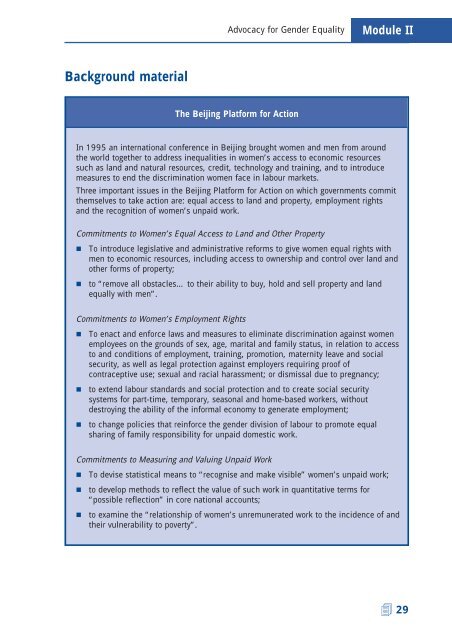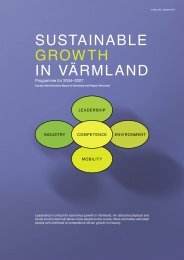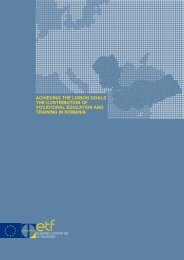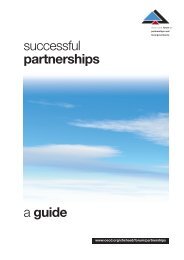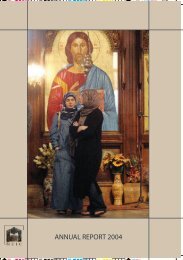PDF (345 KB ) - Document Database website
PDF (345 KB ) - Document Database website
PDF (345 KB ) - Document Database website
You also want an ePaper? Increase the reach of your titles
YUMPU automatically turns print PDFs into web optimized ePapers that Google loves.
Advocacy for Gender Equality<br />
Module II<br />
Background material<br />
The Beijing Platform for Action<br />
In 1995 an international conference in Beijing brought women and men from around<br />
the world together to address inequalities in women’s access to economic resources<br />
such as land and natural resources, credit, technology and training, and to introduce<br />
measures to end the discrimination women face in labour markets.<br />
Three important issues in the Beijing Platform for Action on which governments commit<br />
themselves to take action are: equal access to land and property, employment rights<br />
and the recognition of women’s unpaid work.<br />
Commitments to Women’s Equal Access to Land and Other Property<br />
<br />
<br />
To introduce legislative and administrative reforms to give women equal rights with<br />
men to economic resources, including access to ownership and control over land and<br />
other forms of property;<br />
to “remove all obstacles… to their ability to buy, hold and sell property and land<br />
equally with men”.<br />
Commitments to Women’s Employment Rights<br />
<br />
<br />
<br />
To enact and enforce laws and measures to eliminate discrimination against women<br />
employees on the grounds of sex, age, marital and family status, in relation to access<br />
to and conditions of employment, training, promotion, maternity leave and social<br />
security, as well as legal protection against employers requiring proof of<br />
contraceptive use; sexual and racial harassment; or dismissal due to pregnancy;<br />
to extend labour standards and social protection and to create social security<br />
systems for part-time, temporary, seasonal and home-based workers, without<br />
destroying the ability of the informal economy to generate employment;<br />
to change policies that reinforce the gender division of labour to promote equal<br />
sharing of family responsibility for unpaid domestic work.<br />
Commitments to Measuring and Valuing Unpaid Work<br />
<br />
<br />
<br />
To devise statistical means to “recognise and make visible” women’s unpaid work;<br />
to develop methods to reflect the value of such work in quantitative terms for<br />
“possible reflection” in core national accounts;<br />
to examine the “relationship of women’s unremunerated work to the incidence of and<br />
their vulnerability to poverty”.<br />
29


